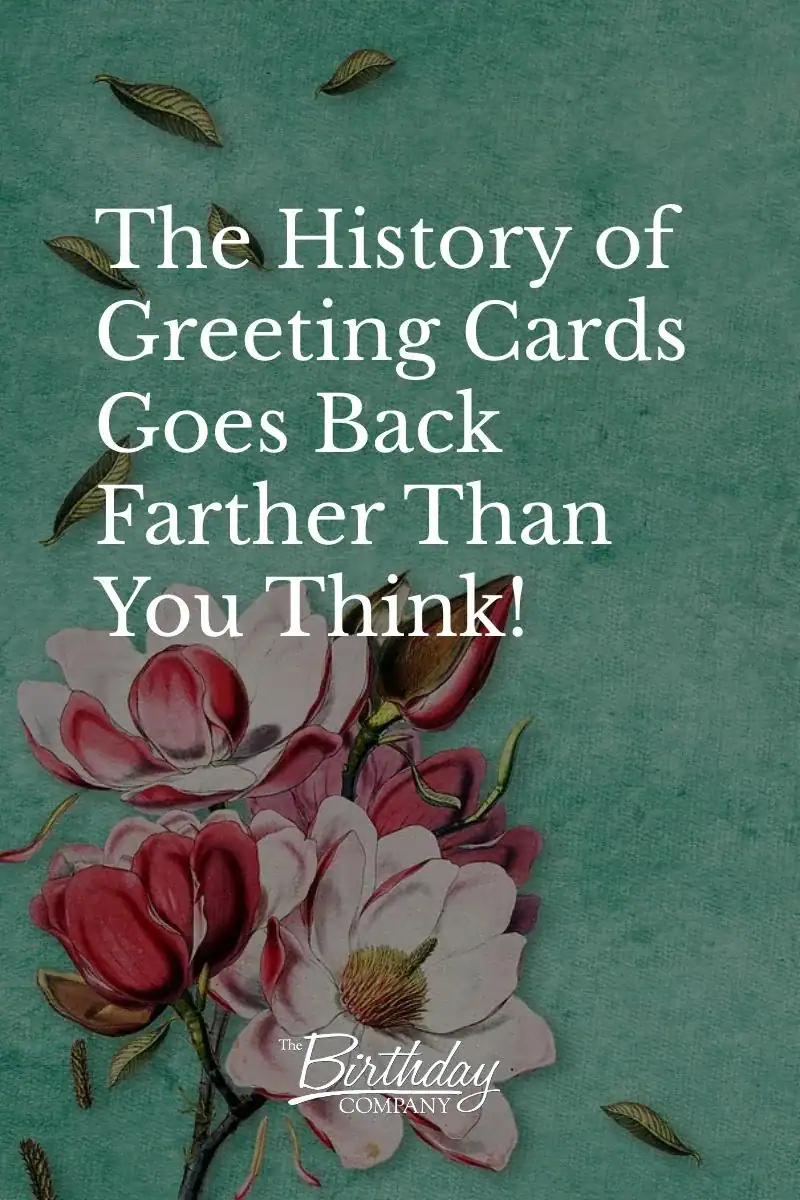Greeting cards are extremely common in our modern world, and people in the US send 55 cards on average each year. We use them to send well wishes, acknowledge the important moments in our loved ones’ lives, and show gratitude to those we appreciate.
You might not be aware of the long history of greeting cards, which goes back further than you would think. In this article, we’re going to explore the history of greeting cards to give some background about how they became so popular today.

The first greeting cards
The first use of greeting cards dates back to ancient China, where greeting cards were used to send good wishes on the lunar New Year. These messages were supposed to ward off the evil spirit, Nian, who would terrorize people at the end of the year.
Greeting cards were also used by early Egyptians who used papyrus scrolls to send their messages. These were also sent at the New Year, but their intention was to send well wishes for the new life cycle.
The Chinese invented paper in the year 100 CE, and this was the most common medium to send early greeting cards. Historically, handmade cards were expensive and were usually only used by the upper class.
By the 15th century, greeting cards were becoming more common around Europe. For example, Germans used them to send messages at New Year. The first Valentine’s Card was sent as far back as 1415, which is now displayed in the Britsh Library. Charles, Duke of Orleans, sent the card to his wife while he was being kept captive in the Tower of London.
The growth of greeting cards
The advancement in printing technologies and manufacturing meant that greeting cards became cheaper and more accessible, leading to a surge in popularity.
In 1840, the first postage stamp, the “Penny Black,” removed the need for hand delivery so that greeting cards could be sent with even less effort. Soon after, in 1843, the first commercial Christmas card was produced by Sir Henry Cole with the help of artist John Calcott Horsley. Sir Henry Cole wanted a holiday card to send to his friends and family and sold the extra cards commercially.
A few years later, in 1849, Esther Howland created a publishing firm specializing in Valentine’s cards. Then, in 1856, an American German, Louis Prang, known as ‘the father of greeting cards,’ opened his greeting card business near Boston. He invented chromolithography, a multi-color printing process, and made the first line of greeting cards.
Soon after, greeting cards branched out further than Christmas and Valentine’s Day. People started sending birthday greeting cards and celebratory cards for weddings, births, graduations, and other holidays.

The greeting card industry today
With greeting cards becoming more affordable and accessible to all over the years, their popularity has soared. We often use greeting cards to put our thoughts into words and share that people are in our minds at special moments.
Whether you prefer to buy produced cards, email messages, or homemade cards with colorful greeting card paper and fun decorations, you’ll have had experience with greeting cards.
Technology is constantly challenging the greeting card industry, with people opting to send an email or text message to give well wishes. However, the use of greeting cards doesn’t seem to be slowing down, and the industry is expected to be worth an estimated $7.5 billion dollars in the US.
Showing someone appreciation is one of the most popular reasons to send greeting cards. We send greeting cards to say thank you for gifts or for doing something that helps us. Greeting cards can also be used in the corporate world. Telling your customers how much you appreciate them is a great way to improve loyalty.
The Birthday Company helps you show your customers how much you appreciate them and their business. We’ll have the perfect card or gift for you to show your clients how much you appreciate them and we do all the work! Just upload your client list and never miss a client’s birthday again.
Final thoughts
Greeting cards have been used to send well wishes for thousands of years, but they really gained popularity around the 15th century. Since then, society has continued to send greeting cards to express well wishes and gratitude.
There are no limitations on why you can send greeting cards to people; the recipient will always appreciate handwritten notes or a personalized message. It’s yet to be seen whether technology will reduce the use of greeting cards, but they seem to have stood the test of time so far.
Sources:
https://www.gildshire.com/greeting-cards-history-usage-and-creation-of-seasonal-and-everyday-greetings/
https://www.greetingcard.org/industry-resources/history/
https://en.wikipedia.org/wiki/Greeting_card
https://www.britannica.com/topic/greeting-card
https://www.penheaven.com/blog/history-greetings-cards
https://dailyhistory.org/Where_Did_the_Tradition_Of_Greeting_Cards_Develop
https://www.encyclopedia.com/social-sciences-and-law/sociology-and-social-reform/sociology-general-terms-and-concepts/greeting-card-industry
https://www.businessnewsdaily.com/3951-first-valentine-cards.html
